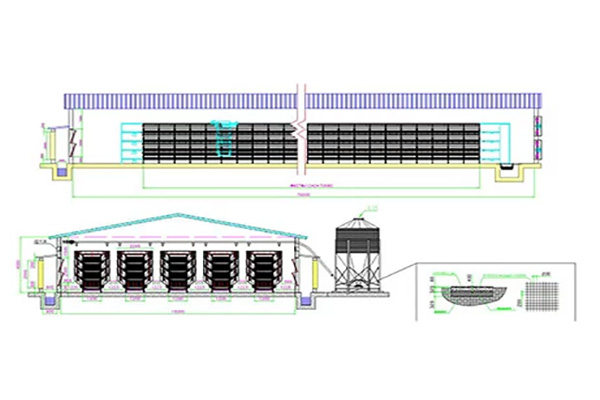How to Start a Small Chicken Farm in South Africa
Time : 2025-07-03
Starting a small chicken farm in South Africa can be a rewarding venture, offering both financial and personal benefits. However, it’s important to understand the process and invest in the right equipment to ensure a successful business. In this comprehensive guide, we will cover the essential steps to start your small chicken farm, from planning to setting up and maintaining your operation.
Planning Your Small Chicken Farm
1. Market Research
Before starting your chicken farm, it’s crucial to conduct thorough market research. This will help you understand the demand for chickens in your area, the competition, and the types of chickens that are popular among consumers. Consider the following aspects:
– Local demand for chicken meat and eggs
– Seasonal fluctuations in demand
– Competitors and their pricing strategies
2. Legal Requirements
Ensure you comply with all legal requirements for starting a chicken farm in South Africa. This includes obtaining the necessary permits, licenses, and following biosecurity regulations. Some of the key legal aspects include:
– Zoning and land use permits
– Animal welfare regulations
– Environmental impact assessments
– Health and safety standards
3. Business Plan
Develop a comprehensive business plan that outlines your goals, strategies, and financial projections. This will serve as a roadmap for your chicken farm and help you secure funding if needed. Your business plan should include:
– Detailed marketing strategy
– Financial projections (profit and loss, cash flow, break-even analysis)
– Business operations and management plan
Choosing the Right Chicken Breed
Selecting the right chicken breed is crucial for your farm’s success. Different breeds have varying characteristics, such as growth rate, laying ability, and temperament. Some popular chicken breeds in South Africa include:
– Lohmann Brown: A high-yielding layer breed
– Rhode Island Red: Known for its good laying ability and growth rate
– Maran: A popular egg-laying breed with dark brown eggs
– Wyandotte: A dual-purpose breed suitable for both meat and eggs
Equipment and Infrastructure
To start your small chicken farm, you will need to invest in the right equipment and infrastructure. Here’s a list of essential items:
Chicken Houses
– Chicken coops: Constructed from durable materials to protect chickens from predators and harsh weather conditions.
– Roosts: Perches for chickens to roost at night.
– Nesting boxes: Provide a safe and comfortable space for hens to lay eggs.
Feeding Equipment
– Feeders: Provide chickens with easy access to feed.
– Waterers: Ensure chickens have access to fresh, clean water at all times.
Equipment for Health and Welfare
– Incubators: For hatching chicks and managing the incubation process.
– Heating lamps: To keep chicks warm during the first few weeks of life.
– Vaccination equipment: To prevent diseases and maintain good health.
Farming Equipment
– Tractors: For land preparation and maintenance.
– Fencing: To protect your chickens from predators and maintain biosecurity.
Setting Up Your Chicken Farm
1. Land and Location
Choose a suitable location for your chicken farm, ensuring it is accessible to suppliers and customers. Consider factors such as:
– Proximity to markets and transportation routes
– Availability of water and electricity
– Land topography and soil quality
2. Construction and Infrastructure
Construct your chicken houses and other necessary infrastructure according to the design and specifications of your business plan. Ensure that the buildings are well-ventilated, secure, and comfortable for your chickens.
3. Purchasing Chickens and Feed
Purchase your chickens from a reliable breeder or hatchery. Ensure you select healthy chicks and consider the breed, age, and sex of the chickens according to your business needs. Also, invest in high-quality chicken feed to promote growth and productivity.
Maintaining Your Chicken Farm
1. Health and Welfare
Regularly monitor the health and welfare of your chickens. Implement biosecurity measures to prevent the spread of diseases and ensure a healthy flock. This includes:
– Regular vaccinations
– Proper nutrition and water supply
– Regular health checks
2. Management and Record Keeping
Maintain detailed records of your farm’s operations, including:
– Feed consumption and costs
– Egg production and sales
– Health records
– Flock management
3. Marketing and Sales
Develop a marketing strategy to promote your chicken farm and products. Consider the following options:
– Online marketing and social media
– Local farmers’ markets and agricultural fairs
– Distributing to local restaurants and grocery stores
Conclusion
Starting a small chicken farm in South Africa requires careful planning, research, and investment in the right equipment and infrastructure. By following these steps and staying focused on your goals, you can establish a successful and profitable chicken farm. With dedication and hard work, your farm can become a valuable asset to the local community and economy.












